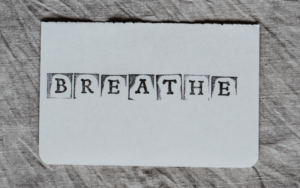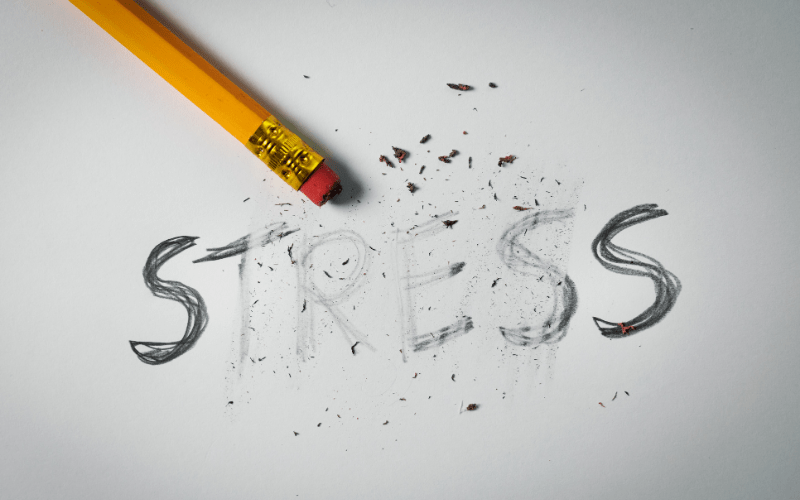10 Trauma-Informed Ways to Ease Stress
It is Stress Awareness Day! And what a loaded topic. Many of us know what stress feels like and most of us wish we had less of it. Stress responses are natural body responses, such as the release of cortisol hormones, to facing challenges or threats. Stress is helpful because it notifies our brain and nervous system to look out for danger around us, and to respond to danger by activating our stress response system: fight, flight, or freeze reactions. The stress response of our bodies is an older evolutionary tactic that helped us to survive and respond to life-threatening experiences such as wild animal attacks. However, this same internal life-threat alarm system is activated when we experience modern life challenges such as work-related stress, social conflict, or experiencing micro or macro-aggressions based on social minority status. Many people in today’s world experience feelings of constant stress or pressure, and prolonged experiences of stress can lead to serious mental and physical challenges. It is important to learn ways to help calm our nervous systems so we can better regulate and address the stress in our lives.
Here are a few trauma-informed reminders for self-care as you face your daily stressors. If you experience continual feelings of overwhelm from stress, reach out for professional help. There are many mental health treatments that can help, including EMDR therapy, which incorporates regulation skill building in Phase 2.
1. Get up and stretch.
Yes, even if you think you will look a fool! Side bends, lunges, neck rolls, arms over your head. Whatever it takes to make you feel your connection to your body and take your brain out of a mental spin. The title of Dr. Bessel van der Kolk’s famous book, The Body Keeps the Score (2014), says it all. Our bodies are part of how we interact with the world. You likely already know that your brain stores memories of your experiences, but our bodies store information from our experiences, too. Our bodies feel and store anxiety and stress. Moving and feeling your body can help move anxiety through you and remind you that you are safe in your body in the present moment.

2. Take slow intentional deep breaths.
Make these breaths the kind where you feel your whole lower ribcage expanding on the inhale, and you picture your stress exiting with your exhale. For a challenge, try ujjayi breathing to follow your breathing and stay in the moment. This YouTube video gives an ujjayi how-to.
3. Disconnect from the news media.
It is important to know what is happening in the world around us. But make your time catching up on the news a conscious choice. Reporting is one thing, but the current digital news media has figured out how to keep us hooked by shocking us again and again with rehashed stories to keep us paying attention. Trauma therapists will tell you that each ‘hit’ can trigger the body’s stress response. Trust when your gut tells you ‘I’ve got the gist’ and turn it off until later.

4. Connect with a loved one.
Talk to a friend or family member. Allow your brain’s dopamine response system to be triggered by relational connection rather than digital feedback (or carb-loading or that last glass of wine…). Better yet, hug this friend or family member–pets included! In their book Burnout: The Secret to Unlocking the Stress Cycle (2019), the Nagoski sisters mention that a 20-second hug can release oxytocin and help ease your stress response.
5. Take a walk.
Walking provides a perspective shift and an opportunity to reset the mind. And how cool is it to think about walking as a natural way to relieve stress via alternating bilateral stimulation? (Alternating bilateral stimulation is one part of EMDR therapy.) If possible, find a park or natural area to walk to so you can also be reminded that we are just one part of the larger natural world. For those people who cannot walk, take a few minutes outside just being.

6. Drink a glass of water.
Staying hydrated can reduce stress. It can provide an interruption from the stressful thing, but more than that, drinking water helps stabilize levels of cortisol (a stress hormone), and supports your brain.
7. Turn off all screens for five minutes.
It sounds so easy, but we all know how hard it is. Even if we manage to rip ourselves away from the news cycle, social media platforms are designed to be our next go-to, to keep our attention glued for that next dopamine hit. Shutting off all screens and putting your phone in airplane mode for five minutes (or a whole evening) can feel liberating. A total digital break can help you reset, rest your eyes, make you feel more present and focused for those around you, and remind you what stillness is like.
8. Give yourself a massage.
Maybe your shoulders are tight, or your head or hands need some attention. Like stretching, this can shift your focus away from mental anxiety and ease tension where you hold that stress in your body. The bonus is that massaging yourself is also showing yourself compassion, a meaningful way to acknowledge the pressure of the moment and allow yourself to feel it while caring for yourself. Dr. Kristin Neff, an expert on self-compassion, “having compassion for yourself means that you honor and accept your humanness.”

9. Journal.
Set aside a few minutes a day to reflect on your feelings and reactions to what is going on in the world by writing them down. Getting those experiences and emotions outside of you on the page helps integrate your brain’s thinking and feeling parts. If this feels daunting, start with a gratitude list. What are three things you are grateful for each day?
10. Hum to yourself.
Or laugh out loud or sing your favorite song. Who cares if someone thinks you are crazy? Trust that you are self-soothing by activating your vocal cords, which in turn activates your vagus nerve, which decreases stress. You are creating a resonance within yourself. Trauma therapist Resmaa Menakem references humming as a healing strategy and body practice in his book My Grandmother’s Hands: Racialized Trauma and the Pathway to Mending Our Hearts and Bodies (2017).
Susanna Kaufman works with content at EMDRIA, compiling and editing Focal Point blog posts while working toward her full LPC licensure in Texas.
Back to Focal Point Blog Homepage
Additional Resources
If you are a therapist interested in the EMDR training:
- Learn more about EMDR at the EMDRIA Library
- Learn more about EMDR Training
- Search for an EMDR Training Provider
- Check out our EMDR Training FAQ
If you are EMDR trained:
- Check out EMDRIA’s Let’s Talk EMDR Podcast
- Check out the EMDRIA blog, Focal Point
- Learn more about EMDRIA membership
- Search for Continuing Education opportunities
If you are an EMDRIA Member:
Date
November 3, 2021
Contributor(s)
Susanna Kaufman
Practice & Methods
Self-Care





